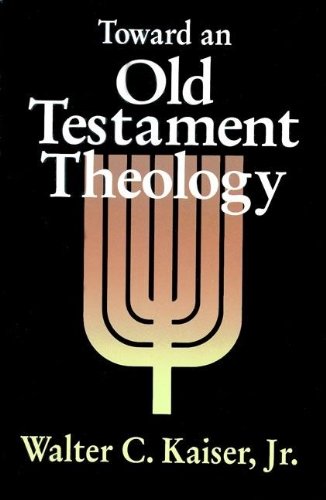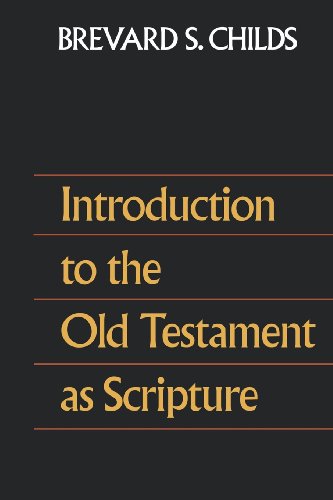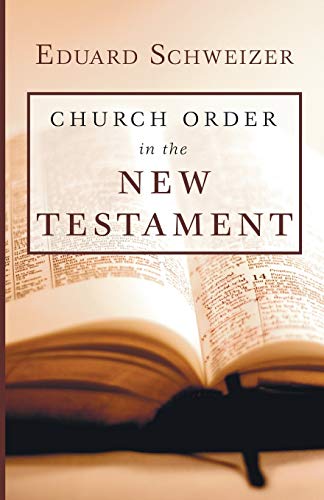Calvin and English Calvinism to 1649
Written by R. T. Kendall Reviewed By Tony LaneIn 1976 there was a lively debate at the Westminster Conference following Dr Kendall’s provocative paper on the relation between Calvin and seventeenth-century English Calvinism (hereafter for convenience simply called ‘Calvinism’). This paper was based on his Oxford DPhil thesis, which has now been published virtually unaltered. It is a valuable addition to the growing body of material on the relation between Calvin and Calvinism (and the Westminster Confession in particular) and as such will be of particular interest to those who see themselves as standing within this tradition or who have a special interest in this period of history.
Fundamental to the book is the contrast between Calvin and the ‘experimental predestination tradition’ which underlies the Westminster Confession. For Calvin there is no clear distinction between faith and assurance since the definition of faith includes assurance. (I would refer the interested reader further to my article on ‘Calvin’s Doctrine of Assurance’, Vox Evangelica 11, 1979, pp. 32–54, hereafter VE. This article was written with a. partial knowledge of Dr Kendall’s thesis.) For the experimental predestinarian tradition, assurance is not part of the definition of saving faith and there is a clear distinction between faith in Christ and assurance of one’s own salvation. While assurance was no problem for Calvin it became a burning issue for the experimental predestinarians. The doctrine of election poses the vital question—am I elect? 2 Peter 1:5–10 is seen as providing the key to the solution. Assurance is found by looking within, by observing within myself the evidence of election. Assurance does not come by the ‘direct act’ of faith in Christ but by the ‘reflex act’ of observing my own faith or other evidence of election. Assurance follows from the ‘practical syllogism’: All who believe/are holy are elect; I believe/am holy; Therefore I am elect.
Dr Kendall sees the origin of this tradition in William Perkins’ synthesis of the teaching of Theodore Beza (Calvin’s successor at Geneva) and the Heidelberg theologians Ursinus, Olevianus and Zanchius. He traces it further through Perkins’ successors in England and America, with a side glance at Arminius, culminating in the Westminster Confession itself.
There is no questioning the fact of a change between Calvin and Calvinism and Dr Kendall has documented this thoroughly and helpfully. Less clear are the reasons for the change. Dr Kendall locates these in the doctrine of limited atonement and the voluntaristic concept of faith. This interpretation is open to question as this review will seek to show, with reference to Calvin’s teaching.
Limited Atonement
According to Dr Kendall, Calvin held that Christ died for all without exception but that he intercedes only for the elect. The doctrine of limited atonement, prevalent in Calvinism, he attributes to Beza. This interpretation is broadly correct, but some reservations are necessary. While Calvin repeatedly speaks of Christ’s death for all, the picture is not completely clearcut.
(1) There is at least one passage where Calvin explicitly states that Christ did not die for unbelievers (Calvin: Theological Treatises, Library of Christian Classics vol. 22; London: SCM, 1954, p. 285). This Dr Kendall ignores. In his preface he refers to ‘certain statements by Calvin himself, which, some thought, support a different view’ (p. vii). It is not sufficient in a scholarly work simply to cite the passages supporting one’s own theory and merely to acknowledge the existence of contrary evidence without citing it or interpreting it.
(2) The clear distinction between Christ’s death (for all) and his intercession (for the elect only) appears in Calvin’s commentary on Isaiah 53:12, but other passages (not mentioned by Dr Kendall) militate against it. Calvin elsewhere argues that Christ’s intercession for us is not to be separated from his death for us but that it is the power of his death that intercedes for us (Institutio 3.20.20; cf. Commentary on Rom. 8:34; Sermonon Is. 53:12). Clearly this does not support Dr Kendall’s thesis. We must recognize that Calvin had not necessarily worked out a consistent position on every topic, especially on those which were only later to become the subject of controversy.
(3) Calvin does not, as Dr Kendall argues (p. 16), reject the scholastic formula that Christ died sufficiently for all but efficiently only for the elect. He simply disputes its relevance to the interpretation of 1 John 2:2. But this does not necessarily harm Dr Kendall’s thesis. Beza, the father of limited atonement, rejected the formula, while allowing that it could be given an acceptable meaning. (Cf. W. R. Godfrey, ‘Reformed Thought on the Extent of the Atonement to 1618’, Westminster Theological Journal 37, 1974/5, pp. 133–71.) In fact the formula does not touch on the question at issue, which is not the value of Christ’s death (sufficient) nor the quantity of the beneficiaries (efficient) but the intention of God in giving his Son. Calvin’s teaching needs closer attention with this specific question in mind.
Granted that the main thrust of Calvin’s teaching is that Christ died for all and that Beza and Calvinism taught limited atonement, does it follow that this difference accounts for the problems of the latter tradition regarding assurance? There are a number of reasons for doubting this.
(1) The difference between Calvin and Calvinism is not as great as at first sight appears. It is true that Calvin could tell the enquirer that Christ died for him while the Calvinist could not, but the similarity in words conceals a difference in meaning. When Calvin affirmed that ‘Christ died for you’ he meant ‘Christ died for you as he did for every human being, but this does not guarantee your salvation unless you are elect, unless you come to faith.’ The Calvinist cannot say ‘Christ died for you’ because this means ‘Christ died for you, one of the elect whose salvation is guaranteed.’ Clearly what Calvin asserts and what the Calvinist does not know are not one and the same statement.
(2) In more general terms, for Calvin and for Calvinism alike there are both universal and particular aspects to the gospel. Both agree that the promises of God are addressed to all, that Christ is offered freely to all. Both agree that none can be saved except by God’s grace and that this grace is given only to the elect, on no grounds of our merit. The point at issue is, in a sense, only a boundary dispute-does the death of Christ fall in the universal category (Calvin) or in the particular category (Calvinists)? It is not an insignificant or irrelevant question but it is not decisive for the question of assurance. If Beza’s limited atonement brings the possibility of doubting whether Christ has died for me, Calvin’s (alleged) limited intercession brings the equal possibility of doubting whether Christ intercedes for me. That these doubts do not appear in Calvin is to be traced not to his different doctrine of the atonement but to his different doctrine of assurance (cf. VE for more details).
(3) If limited atonement is accepted it is not possible for faith to rest on the fact that Christ has died for me. But while Calvin at times speaks of Christ’s death as the object of faith, it is more often the promises of God, God’s grace or some other more general concept in which we are urged to trust (VE pp. 35f.). The Calvinist, believing in limited atonement, cannot see the death of Christ as the object of faith but he still has the free offer of the gospel, the promises of God on which to base his faith. It is true that this is a narrower base than for Calvin, but the difference is quantitative rather than qualitative. Limited atonement does not of necessity require a distinction between faith and assurance, as Dr Kendall implies (p. 75).
(4) It is significant that Richard Baxter (not mentioned by Dr Kendall), a seventeenth-century Calvinist who believed in universal atonement, did not break out of the experimental predestinarian mould. While this proves nothing it does suggest that the experimental predestinarian approach to assurance is not necessarily linked to the doctrine of limited atonement.
Voluntarism
Dr Kendall draws a sharp contrast between Calvin, for whom faith is simply a persuasion in the mind alone, and the Calvinists, for whom faith is also or exclusively located in the will. Related to this is the contrast between faith as persuasion (Calvin) and faith as appropriation (the Calvinists). The difference in their doctrines of assurance is traced to their different concepts of faith. In order to maintain his thesis Dr Kendall has to argue that Beza and Perkins ought to have placed faith in the will while in fact they professed to locate it in the mind (pp. 34, 61f.). While this is not an unreasonable position to take it should alert us to the fact that the contrast is not as sharp as Dr Kendall would like. It is questionable whether the voluntaristic concept of faith is the real cause for the Calvinist problems with assurance.
(1) For Calvin the seat of faith is not the mind alone. Faith begins in the mind but it must proceed to the heart which is not simply ‘a fully persuaded mind’ (p. 28). (Cf. VE pp. 41–5 for the evidence for this.)
(2) For Calvin faith is not without an element of appropriation, though this is secondary to faith as knowledge or persuasion. If faith were in the mind alone with no element of appropriation it would follow that faith is the knowledge of something that is already true. This is precisely the position of Cotton and the ‘Antinomians’ whom Dr Kendall praises for recognizing that faith is knowledge. They held that the elect are justified before they believe and that faith is simply recognizing this (pp. 171, 187f.). This is not what Calvin taught. For him we are not justified until we believe (VE pp. 41–5).
(3) Dr Kendall appeals to Calvin’s statements that in conversion the will is abolished, extinguished, effaced (pp. 20f., 200). He sees this as the denial of a voluntaristic view of faith. But this is questionable. In the first place, Calvin qualifies his harsh statements about the abolition of the will. ‘I say the will is abolished, but not in so far as it is will, for in conversion everything essential to our original nature remains: I also say, that it is created anew, not because the will then begins to exist, but because it is turned from evil to good’ (Institutio 2.3.6; cf. 2.3.7, 2.5.15). Secondly, Calvin is defending the doctrine of sola gratia. that conversion is totally the work of God, not defending a non-voluntaristic view of faith. It could be argued that the very fact that Calvin feels the need to do this is itself evidence that he believed that conversion involves the will. If faith were simply a change of mind there would be no need to emphasize the passivity of our wills.
Why did Calvinism depart from Calvin’s doctrine of assurance? The explanation is not primarily to be found in limited atonement or in a voluntaristic concept of faith. Calvin urges the Christian to look away from himself, to Christ, for his assurance while the Calvinists urge him to look within himself for evidences of God’s grace. Calvin saw the dangers of introspection (amply demonstrated by later history) and he saw that to trust Christ for my salvation means to be sure of it. To the extent to which I am not sure of it I am precisely not trusting in Christ. These insights of Calvin, which separate him from Calvinism, are not dependent upon a belief in universal atonement or on a non-voluntaristic concept of faith.
Other points
Dr Kendall traces other themes from Calvin to the Westminster Confession, in addition to limited atonement and voluntarism. He also considers the supralapsarian view of predestination, covenant theology, ‘preparationism’ (preparing oneself for God’s grace), temporary faith and the relation between faith and repentance. In connection with predestination, he implies that for Calvin God’s election is of man as already fallen, i.e. roughly the later infralapsarian position (pp. 1, 15, 30). But for Calvin the fall itself is predestined by God. Adam fell ‘because the Lord deemed it meet that he should’, because God had ordained and predestined it (3.23.1–8).
Conclusion
These points of disagreement should not be seen as denying the value of the book. They should rather be taken as evidences of the extent to which it has stimulated me in my own thinking. My recommendation to those with an interest in this area is definitely to read it, albeit critically.
Tony Lane
London School of Theology







